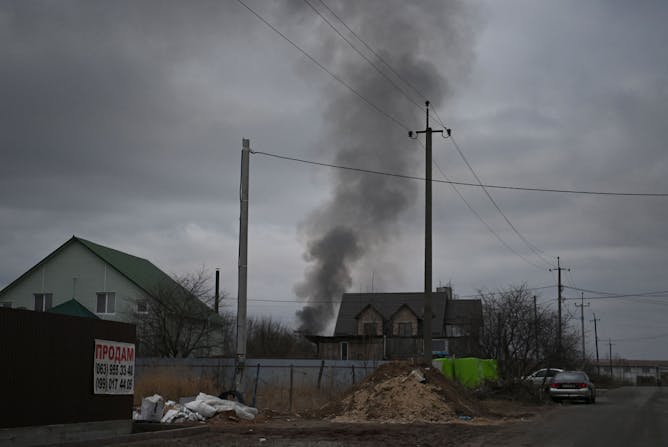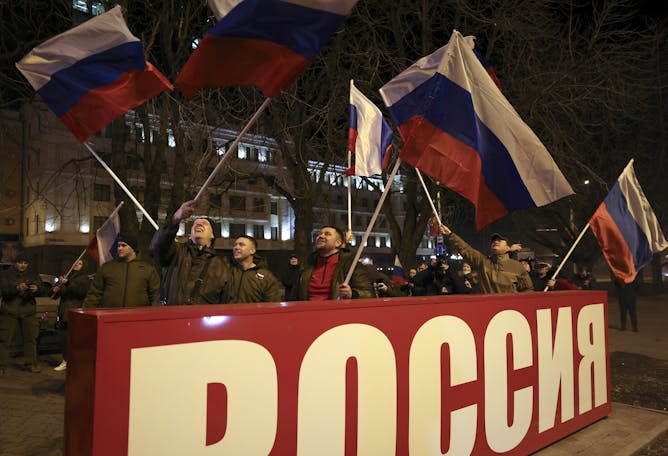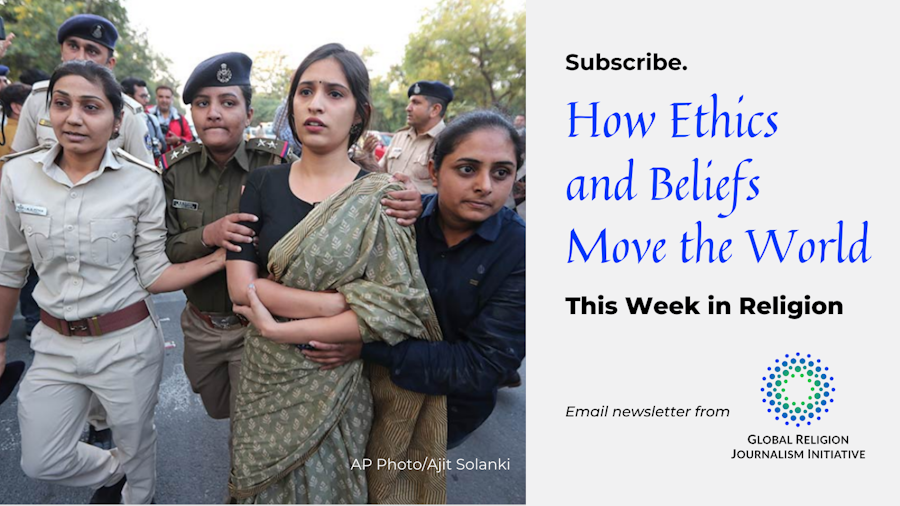|
|
|
|
Like journalists across the globe, The Conversation’s staff members were up late last night as the Russian invasion of Ukraine began. When a historic story breaks, we want to be on top of it – no matter how unsettling it may be to each of us.
We got a story published and out in a special newsletter by 7:20 this morning. It’s a compilation I wrote between 6:10 and 9:20 last night, presenting a selection of our coverage from the past two months to help set the context and history for this war – you can see that here. Our business and economics editor pulled a story that had been finished before the invasion to update it. He texted me at 11:30 last night saying he needed an edit – I got to that at 6:15
this morning and we published “America’s cost of ‘defending freedom’ in Ukraine: Higher food and gas prices and an
increased risk of recession” just before 9 a.m. today.
We also decided to ask a panel of experts for their brief reactions to the invasion. Military scholars write their first takes on the war in this story; and a cybersecurity expert provides a quick guide to how to protect yourself in
what may become a fierce cyberwar. And finally, we asked the eminent University of Michigan historian Ronald Suny, who has spent his long career studying the peoples and politics of the region, to correct a number of historical misperceptions about Russia and Ukraine that have emerged in popular discussion recently.
Coming up in the next days will be more late nights, I imagine, and more stories from our religion, technology, business, energy/environment and politics desks. And of course, we have lots of coverage on other subjects, such as this story on deaths of immigrants at the U.S. southern border and another about the search for progress in post-apartheid South Africa.
The adrenaline from last night is beginning to wear off, but I’ve got two or three more stories to edit. Time for coffee.
|

|
Naomi Schalit
Senior Editor, Politics + Society
|
|

Smoke rising near the town of Hostomel and the Antonov Airport, in northwest Kyiv, Ukraine, on Nov. 24.
Daniel Leal/AFP via Getty Images)
Carla Martinez Machain, Kansas State University; Liam Collins, United States Military Academy West Point; Susan Hannah Allen, University of Mississippi
The Conversation asked three scholars to briefly explain what this attack means for the people of Ukraine and the world.
|

Donetsk residents celebrate recognition of independence of the Donetsk and Lugansk People’s Republics by Russia on Feb. 21, 2022.
Alexander RyuAlexander Ryumin\TASS via Getty Images
Ronald Suny, University of Michigan
History has many uses, and not all of them are noble. That’s very much the case as the public gets a crash course from politicians about Ukrainian history.
|

Regular Americans could find themselves targets of Russian cyberwarfare.
Roberto Westbrook via Getty Images
Richard Forno, University of Maryland, Baltimore County
Russia’s cyberattack capabilities can be applied to US targets, including regular Americans’ homes and businesses.
|
|
|
-
Naomi Schalit, The Conversation
As war begins between Ukraine and Russia, a range of stories provides context to help readers understand the conflict.
-
William Hauk, University of South Carolina
Russia’s invasion will likely accelerate the fastest inflation in 40 years, increasing the risks for the overall US economy.
-
Courtney Riggle-van Schagen, George Washington University; Elizabeth Vaquera, George Washington University
The number of migrants dying while trying to cross the US-Mexico border is at an all-time high. But these figures are still likely an underestimate.
-
Katja Kolcio, Wesleyan University
Many Ukrainian Americans feel connected to Ukraine’s history and independence, including scholar Katja Kolcio. She writes about her family’s work preserving Ukrainian culture as immigrants in the US.
-
Emily Channell-Justice, Harvard University; Jacob Lassin, Arizona State University
The crisis between Russia and Ukraine began with Russian objections to potential Ukrainian membership in NATO. Now it’s clear that Vladimir Putin really wants something else.
-
Arik Burakovsky, Tufts University
Approximately 69% of Russians approve of President Vladimir Putin. But a costly war is likely to chip away at his popularity, history and data tell us.
-
Alma Diamond, New York University
The death of Anglican Archbishop Desmond Tutu in 2021 has triggered renewed frustrations over the elusiveness of a “new” South Africa.
-
Rishikesh Ram Bhandary, Boston University
The damage from storms, droughts and sea level rise is in the news almost daily. Some money is flowing to help poor countries, but what isn’t clear is how much impact the funds are having.
|
|
|
Like this newsletter? You might be interested in our other weekly emails: Enjoy reading The
Conversation? Share us with your three closest friends:
|
| |
| |
| |
| |

|
| |
| |
| |
| |
| |
| |
|
|
|
|
|
|
|